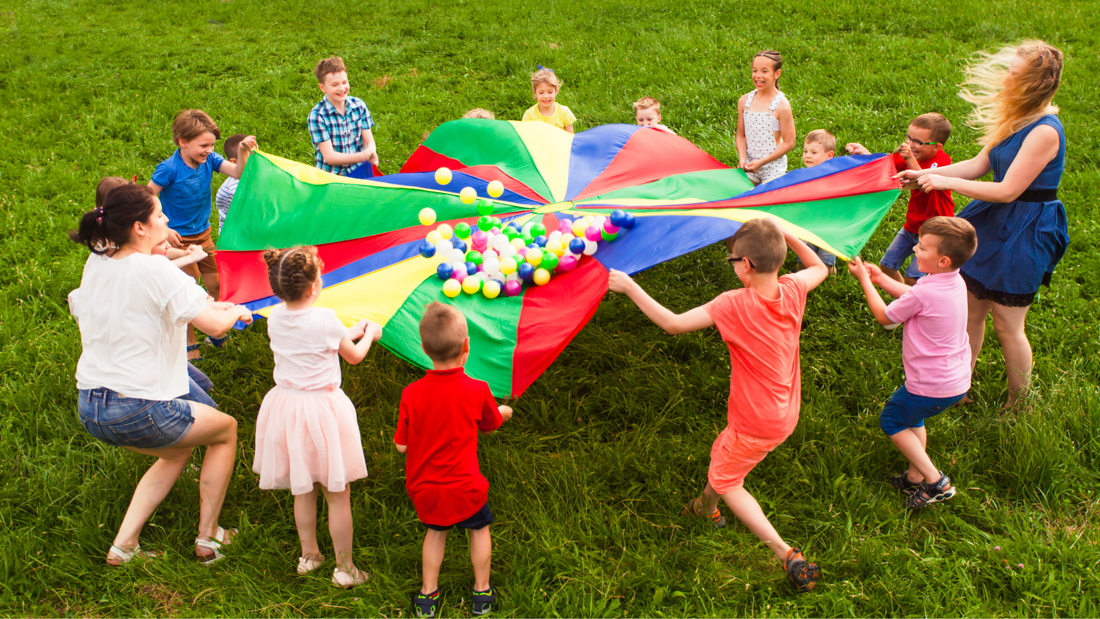
5 Social Awareness Skills to Teach Kids
Share
The ability to understand and connect with others is an essential life skill, known as social awareness.
Social awareness enables kids to build strong relationships, navigate social environments, and thrive in their personal and professional lives. It builds empathy, understanding, and an appreciation for differences. Building this skill in your kiddos will help them immensely as they navigate their various relationships throughout life.
What Is Social Awareness?
At its core, social awareness is the ability to understand and empathize with others' feelings, perspectives, and situations. It involves recognizing social cues, understanding cultural norms, and respecting the diversity around us.
It’s understanding how our actions affect others and responding thoughtfully. Whether it’s recognizing when a friend needs support or adjusting one's actions, language, and demeanor to match the expectations of a specific environment or social situation, social awareness lays the foundation for meaningful interactions.
Why Is Social Awareness Important?
Social awareness fosters empathy, cooperation, and the ability to resolve conflicts. In a world that’s becoming increasingly diverse and interconnected, these skills help children navigate relationships, school, and eventually, the workplace.
Children who develop strong social awareness skills are more likely to collaborate effectively, build strong friendships, and exhibit resilience in challenging situations. Additionally, understanding the importance of others’ feelings and experiences can significantly reduce bullying behaviors and promote inclusivity.
Now, let’s explore five key social awareness skills you can teach your kids to help them grow into thoughtful, compassionate individuals.
1. Recognizing and Understanding Emotions
Recognizing and understanding emotions is the cornerstone of social awareness. Teaching children to identify their feelings and those of others enables them to empathize and respond appropriately in social situations. This skill can be nurtured by using books or movies to discuss characters' emotions, encouraging your child to express their own feelings using “I feel” statements, and practicing naming emotions in everyday life.
For example, when your child notices a sibling sulking, you can guide them to ask, “Are you feeling sad? Do you want to talk about it?” By helping children develop emotional awareness, you empower them to build stronger, more empathetic relationships.
2. Active Listening
Active listening helps children strengthen their relationships and prevent misunderstandings. It teaches them to give their full attention to whomever is speaking while maintaining eye contact, and responding thoughtfully if it calls for it.
You can teach active listening by modeling active listening yourself. For starters, paraphrase what your child says to show you understand. You can also employ fun activities like the "telephone" game to emphasize clear communication.
Place importance on pausing and thinking before responding to someone so they get in the habit of speaking thoughtfully and compassionately. For example, if a friend says they had a bad day, your child can respond with empathy, saying, “I’m sorry to hear that. What happened?” These practices help your child become an attentive and thoughtful communicator.
3. Respecting Differences
Respecting differences helps children thrive in diverse communities. It teaches them to appreciate cultural, social, and individual variations, which fosters inclusivity, and reduces prejudice.
Exposing your child to different cultures helps instill in them this quality. You can teach them how to respect differences through books, food, or travel, discussing the value of diversity, and encouraging respectful curiosity about others’ traditions.
For example, if a classmate has food in their lunch they’ve never seen before, your child could say, “That looks interesting! What’s it called?” instead of making a judgmental comment. By learning to respect differences, children become more open-minded and inclusive individuals.
4. Reading Social Cues
Reading social cues helps children interpret unspoken messages in interactions. To teach this skill, practice observing social cues using different types of facial expressions, tone of voice, and body language.
You can also role-play common scenarios like greeting someone or joining a group activity. Encourage your child to ask clarifying questions if they’re unsure of a dynamic at play or someone’s mood, such as, “Are you upset about something?”
By practicing these scenarios, your child will be better equipped at picking up on a teacher’s serious tone for example. They can recognize it’s time to focus and pay attention. This skill helps children navigate social interactions with confidence and sensitivity.
5. Resolving Conflicts Peacefully
Conflict resolution helps kids maintain healthy relationships and address disagreements without anger or aggression.
Encouraging children to seek “win-win” solutions where both parties feel heard and valued is a critical life skill.
Teaching your child to use phrases like, “I didn’t like when you did that. Can we figure out a better way?” is a great introduction to peaceful conflict resolution. Emphasize the importance of apologizing and forgiving.
For example, when two kids want the same toy, help them take turns or find an activity they can enjoy together. By mastering peaceful conflict resolution, children learn to handle disagreements constructively and strengthen their relationships.
By teaching your children to recognize emotions, listen actively, respect differences, read social cues, and resolve conflicts, you’re equipping them with tools to navigate an increasingly complex world.
These social awareness skills empower kids to form strong connections, build resilience, and approach life with empathy and understanding. Modeling these behaviors in your own interactions is the most effective way to teach them. As your child grows in their ability to relate to others, they’ll not only succeed in their personal relationships but also contribute positively to their communities.
Start small, practice regularly, and watch your child blossom into a socially aware individual ready to make a difference!




















